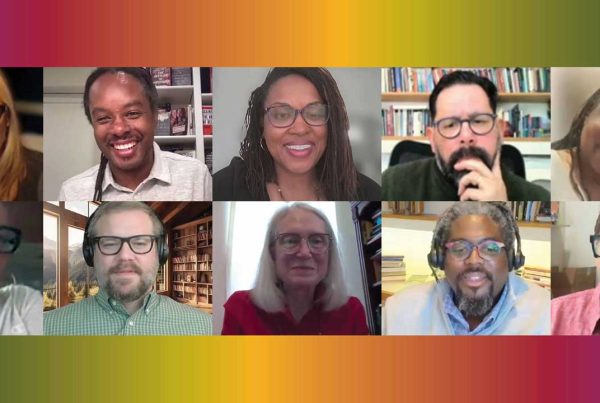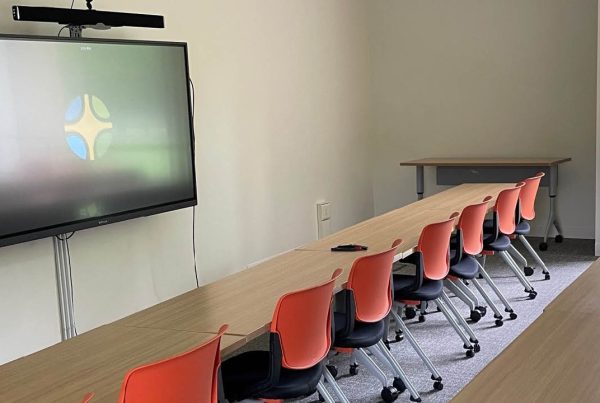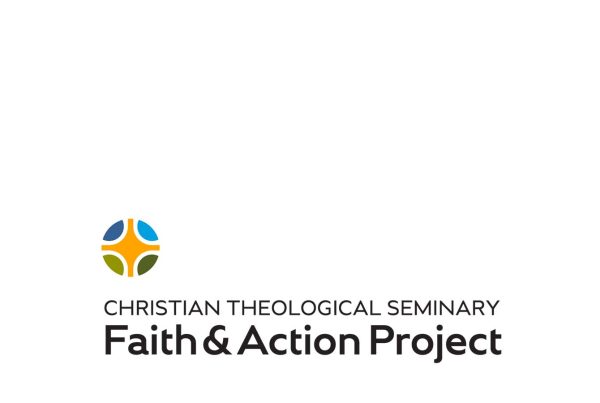CTS 2030: Project Transformation
CTS 2030: Project Transformation was approved by the Board of Trustees in April 2021. The plan, a core strategy that has grown and evolved through the strategic planning process, is simple at its core: we will serve the public through serving the church. The nine-year period is divided into three 3-year cycles, allowing the Seminary to respond as nimbly as possible to emerging changes within and without. For the current cycle from 2024-2027, CTS is focused on making our Essence Statement a reality.
Essence Statement:
“CTS is a catalyst for bringing God’s love, justice, and liberation to the world.”
This essence statement was born out of our mission to form disciples of Jesus Christ for church and community leadership to serve God’s transforming of the world. It is the ultimate contribution we want to have through all of our relationships, degrees, and programs, and is rooted in our belief that every single person is made in the image of God and thereby has divine worth and dignity. The following promises are what we believe it will take to make our essence statement a reality over the next 3 years.
Our Promises
CTS has identified 5 concrete, detailed promises that flow directly from our Essence Statement. These statements are grouped under 3 specific areas that are at the center of the seminary’s identity: clergy, Christian community, and mental health.
Clergy
CTS is committed to 2 promises to support clergy and has identified specific action steps for each year from 2024-2027.
Promise #1
Equip seminarians and clergy for spiritual, mental, and financial well-being
Rev. Dr. Bill Kincaid discusses how CTS plans to provide seminarians and clergy with resources and connections to support their well-being. Dr. Kincaid is the Herald B. Monroe Professor of Leadership and Ministry Studies at CTS and serves as Co-Director of the Doctor of Ministry program.
Action Steps:
2024-2025
- Increase counseling services for all students
- Create financial well-being curriculum
- Review and revise required and elective courses
- Develop messaging of these commitments
- Identify pertinent continuing education for faculty
2025-2026
- Offer the financial wellbeing curriculum
- Implement curricular changes
- Offer pertinent continuing education for faculty
- Increase need-based scholarship
- Create targeted marketing for clergy, alum, denominations
2026-2027
- Increase scholarships for counseling students
- Provide lifelong learning related to spiritual wellbeing
- Implement curricular changes
- Offer pertinent continuing education for faculty
- Create a plan to evaluate the progress of this promise
Promise #2
Equip seminarians and clergy with a Gospel-rooted moral imagination
Rev. Amy Lindeman Allen, PhD, discusses the ways CTS will equip seminarians and clergy with a Gospel-rooted moral imagination of belovedness, healing, welcome, and beauty that fosters interfaith collaboration, racial justice, and justice for LGBTQ+ people. Dr. Lindeman Allen is CTS’s Indiana Christian Church Associate Professor of New Testament and serves as Director of the Master of Divinity program.
Action Steps:
2024-2025
- Review and revise required and elective courses
- Consult with advisory councils regarding this promise
- Further integrate spiritual practices into MDiv formation program
- Develop deeper pattern for student participation in Faith & Action
- Develop messaging of these commitments
2025-2026
- Implement curricular changes
- Offer pertinent continuing education for faculty
- Implement ongoing alumni survey
2026-2027
- Continue to implement curricular changes
- Create plan to evaluate the progress of this promise
Christian Community
CTS is committed to 2 promises to support Christian community and has identified specific action steps for each year from 2024-2027.
Promise #3
Revitalize Christian Community
Rev. Nick Peterson, PhD, talks about the ways CTS will revitalize Christian Community by teaching students to embody radical inclusion, embrace preaching as a form of life, read the Bible contextually, and support new churches. Dr. Peterson is Assistant Professor of Homiletics and Worship and serves as Assistant Director of the PhD in African American Preaching and Sacred Rhetoric program.
Action Steps:
2024-2025
- Review and revise required and elective courses
- Identify pertinent continuing education for faculty
- Explore expansion of Faith & Action
- Explore collaboration with denominations and other organizations to support church revitalization
- Establish CTS’s definition of DEI
2025-2026
- Implement curricular changes
- Implement pertinent continuing education for faculty
- Connect denominational leaders with students and alums around revitalization
- Expand lifelong learning opportunities to include these areas
- Create internal diversity, equity, and inclusion goals
2026-2027
- Expand lifelong learning opportunities
- Continue implementation of curricular changes
- Implement changes in support of internal diversity, equity, and inclusion goals
- Create a plan to evaluate the progress of this promise
Promise #4
Educate & Equip Christian Communities to Advocate for Children & Families
Lindsey Nell Rabinowitch talks about why CTS is committed to educating and equipping Christian Communities to act on behalf of children and families in Metro Indianapolis and how this promise aligns with the seminary’s mission and vision. Lindsey serves as Director of the Faith & Action Project.
Action Steps:
2024-2025
- Establish a process to gather data related to education rates for youth and their mental health needs
- Explore expansion of Faith & Action to include educating congregations and empowering them to act
- Identify areas within CTS language for greater equity and inclusion
- Review and revise required and elective courses
- Develop messaging of these commitments
2025-2026
- Share data regarding education rates for youth and their mental health needs with congregations
- Implement curricular changes
- Implement pertinent continuing education for faculty
- Sponsor networking opportunities for congregations and organizations related to the needs of youth
- Implement language changes throughout CTS for greater equity and inclusion
2026-2027
- Continue to implement curricular changes
- Evaluate and revise co-curricular offerings
- Create a plan to evaluate the progress of this promise
Mental Health
Our final promise is a 2-pronged commitment related to mental health. We have identified specific action steps for each year from 2024-2027.
Promise #5
Better Meet the Mental Health Needs of Black, Brown, & LGBTQ+ People
Dr. Christina J. Davis discusses CTS’s promise to better meet the mental health needs of Black, Brown, and LGBTQ+ people and their communities. This promise will be achieved by expanding the training, education, and competencies of all counseling students to effectively meet the needs of these communities, and by increasing the number of Black, Brown, and LGBTQ+ therapists we graduate. Dr. Davis is Assistant Professor of Pastoral Theology and Marriage and Family Therapy.
Action Steps:
2024-2025
- Review and revise required and elective courses
- Identify pertinent continuing education for faculty
- Provide co-curricular education to residents and interns
- Create focused marketing connecting Black, Brown, and LGBTQ+ people to School of Counseling
- Create focused marketing connecting Black, Brown, and LGBTQ+ people to Counseling Center
2025-2026
- Implement pertinent continuing education for faculty
- Identify and implement pertinent continuing education for supervisors
- Implement curricular changes
- Develop continuing education plan to increase appropriate competencies among clinicians in Indiana
2026-2027
- Continue to implement curricular changes
- Offer pertinent continuing education opportunities to clinicians in Indiana
- Create plan to evaluate the progress of this promise





